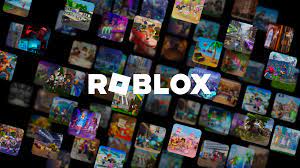ROBLOX – The future of Entertainment industry?

Advancements in generative AI and large language models are revolutionizing the entertainment sector by enabling audiences to immerse themselves in the personas and adventures of their most cherished characters.
Roblox is charting the future of the entertainment industry with its innovative platform that transforms players into creators, fueling a participatory economy at the intersection of gaming and social interaction. Its freemium model, powered by the virtual currency Robux, incentivizes user-generated content, fostering an ecosystem where developers can monetize their creations and consumers can enjoy a diverse gaming experience. This scalability is enhanced by the platform’s reliance on community-driven content over traditional in-house development, ensuring a continually fresh and expansive game catalog. The sustainability of Roblox’s model is contingent upon its ability to attract and retain users, uphold a safe and dynamic environment, and preserve an equitable creator economy. With effective management of these elements, Roblox’s robust community and adaptive ecosystem position it as a scalable and sustainable leader in the digital entertainment realm, reshaping how users engage with content and each other in a virtual space.
Business Model of Roblox
The Roblox business model, innovative at its core, stands to be significantly transformed by the integration of generative AI and large language models (LLMs). This technological infusion promises to elevate the platform’s inherent value creation and capture. AI-driven characters that learn and evolve through interaction can offer personalized storytelling experiences, while adaptive game environments react dynamically to player choices, creating a deeply immersive experience. Moreover, generative AI has the potential to revolutionize the game development process within Roblox, offering creators advanced tools to generate game assets or even write code via intuitive conversational interfaces with LLMs
At the infrastructure level, Roblox’s cloud-based foundation inherently supports scalability, enabling it to effortlessly expand its user base. However, the real challenge—and a critical aspect of its business model—is ensuring sustainable growth. This sustainability is not solely about scaling up but also involves nurturing a safe and engaging platform conducive to the needs of a diverse and growing user base. This includes a commitment to safety protocols for younger users and a dedication to innovation, ensuring that the platform remains at the cutting edge of technology and user engagement trends. In this way, Roblox’s business model is not just about expanding its reach but also about deepening the quality of engagement, thereby securing its place as a trailblazer in the digital entertainment industry
Roblox- Generative AI&LLM
Roblox has acquired several firms of which the acquisition of Loom.ai by Roblox in December 2020 has been a significant move towards enhancing the realism and emotive capabilities of avatars within the platform. This acquisition is pivotal for Roblox’s incursion into the generative AI space within the gaming industry, as Loom.ai specializes in real-time facial animation technology for 3D avatars using deep learning, computer vision, and VFX. The technology from Loom.ai enables more immersive social experiences on Roblox by allowing players’ avatars to express a full range of emotions and facial expressions, which aligns with the platform’s vision of making digital interactions as personal and lifelike as possible. This integration could lead to more realistic and engaging virtual concerts and interactive gameplay, enhancing the overall user experience and potentially setting new standards for avatar technology in the gaming industry.

Roblox has ventured into the VR and AR space, making its platform available on Meta Quest VR headsets via the App Lab, with a full Quest Store release planned for the future. This move potentially broadens its user base by tapping into the VR market, which could be instrumental in selling Meta’s upcoming Quest 3 to a younger audience. Roblox’s adoption of VR is complemented by its support for PC-based VR through OpenXR, which includes compatibility with various headsets like Quest Link, Rift S, Valve Index, and HTC Vive. The platform has also introduced a ‘VR’ device type checkbox in the experience settings to optimize performance for VR, indicating a strategic pivot towards immersive experiences.
Roblox’s strategy for value creation and capture, combined with its scalability and sustainability, is a testament to the potential of user-generated content platforms. By harnessing the power of its community and leveraging emerging technologies like generative AI and LLMs, it is Roblox is not just adapting to the future of the entertainment industry—it is actively shaping it. As long as it continues to balance innovation with community welfare, Roblox stands poised to remain at the forefront of the digital entertainment landscape.


